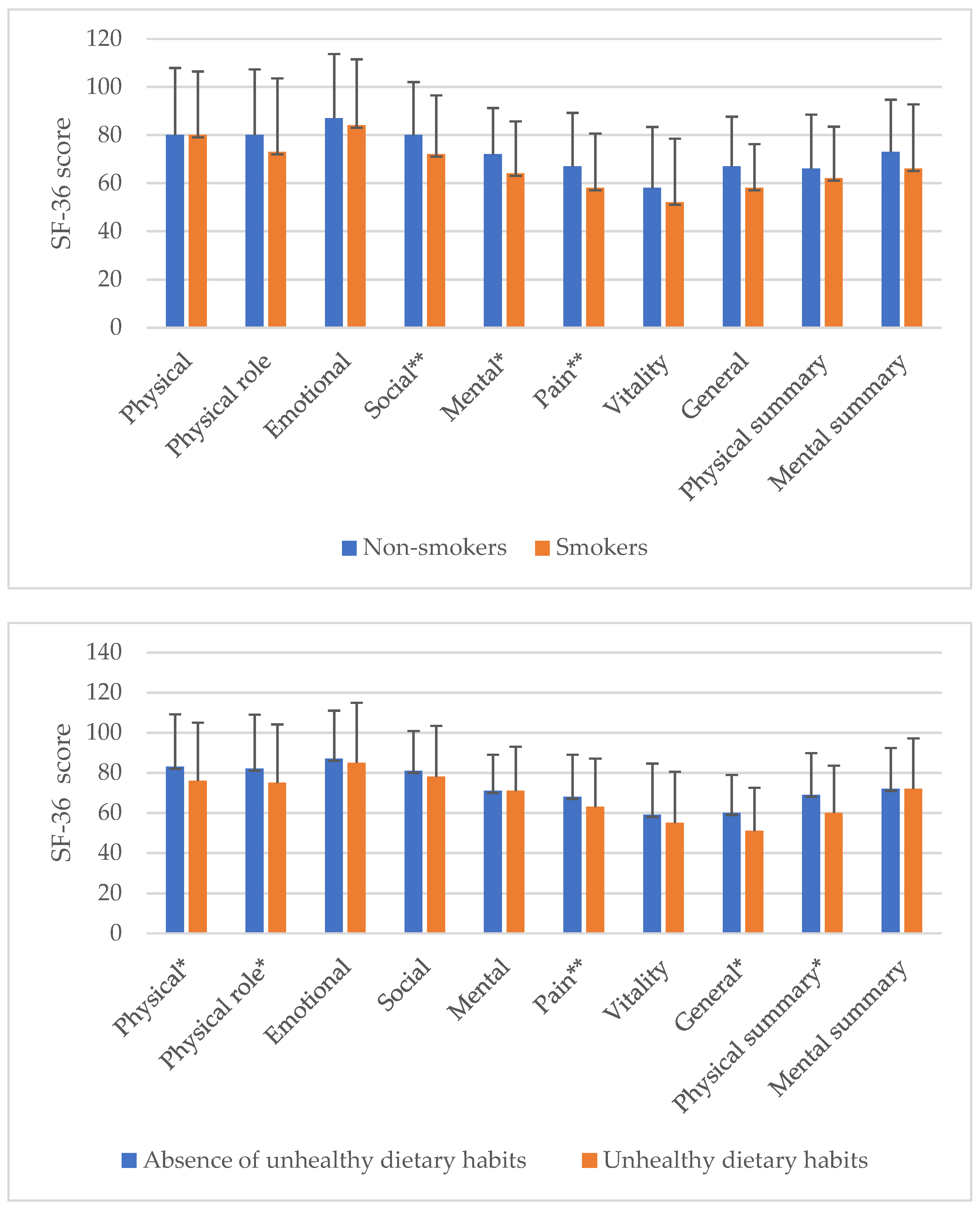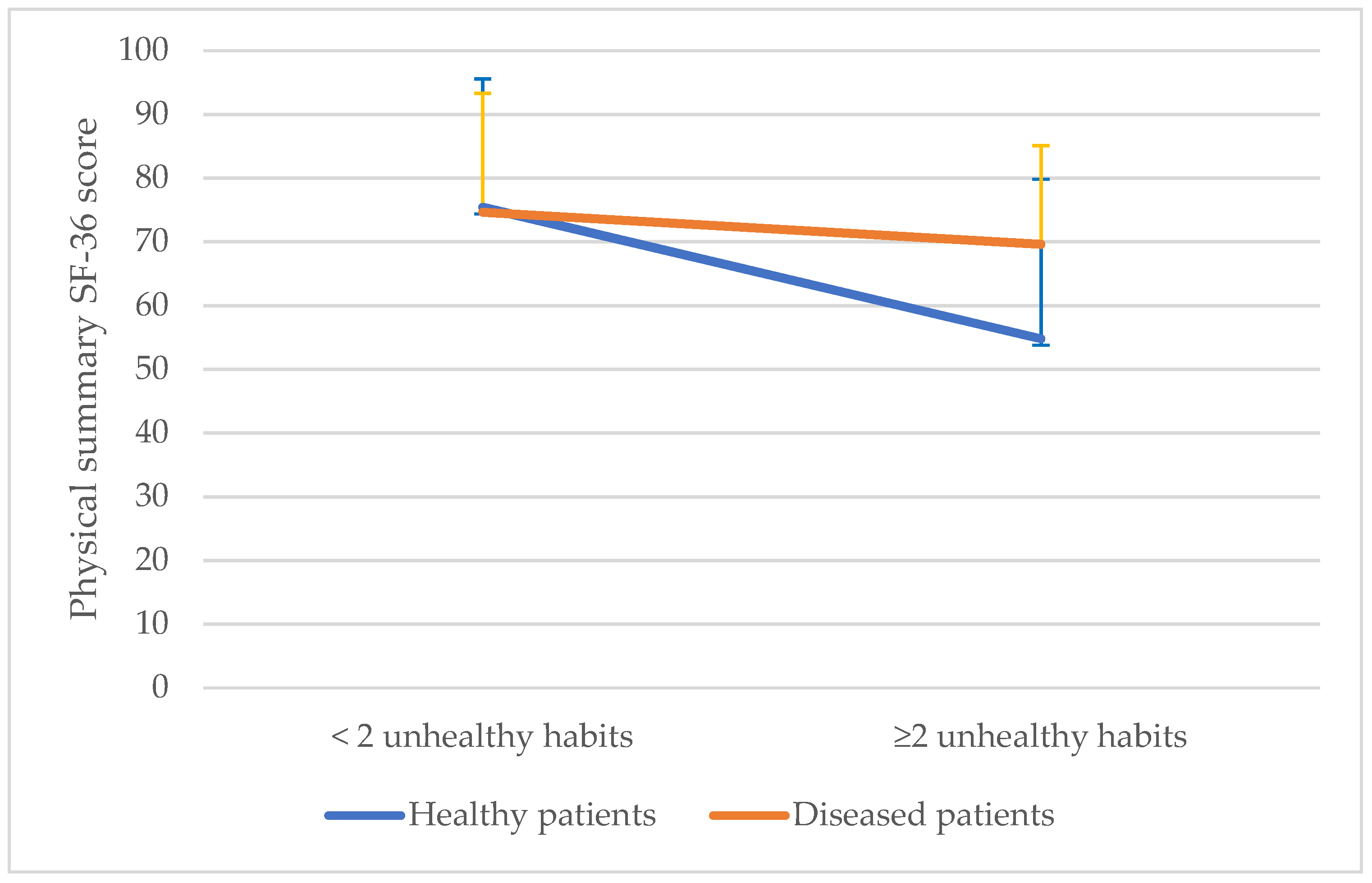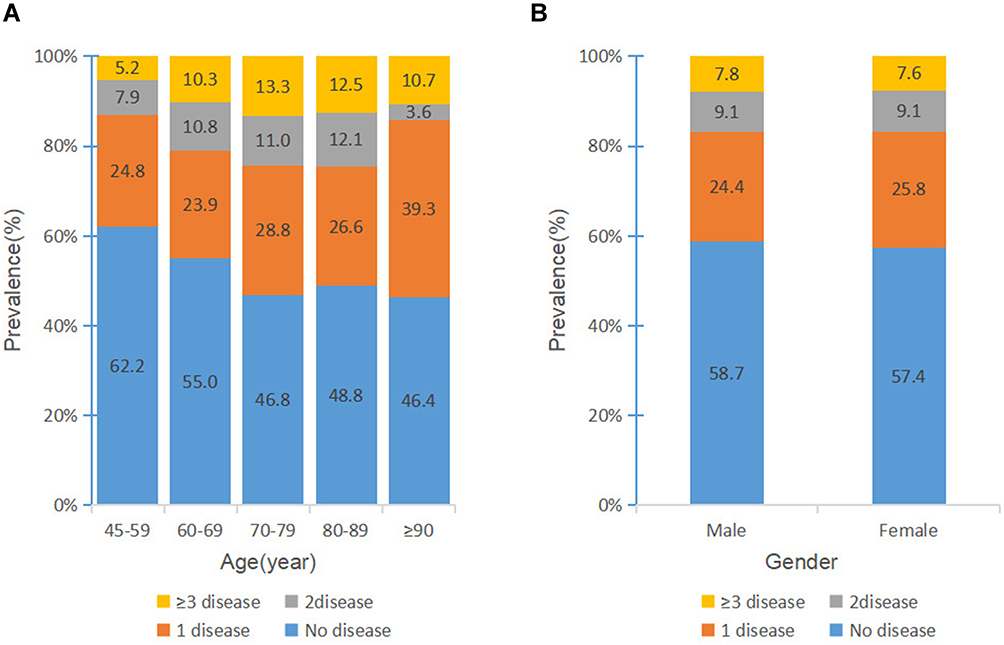The prevalence of ADHD in the general adult population is 2.5% and it is associated with substantial personal and individual burden. The most frequent comorbid psychopathologies include mood and anxiety disorders, substance use disorders, and personality disorders.
IJERPH | Free Full-Text | Interactions of Comorbidity and Five Simple Environmental Unhealthy Habits Concerning Physical and Mental Quality of Life in the Clinical Setting
Aug 21, 2023Comorbidities ranging from hypertension and obesity to liver disease and sleep apnea are common with type 2 diabetes: A recent study of more than 1.3 million people showed that nearly 98% of adults with type 2 diabetes have at least one comorbid chronic disease and almost 90% have at least two (known as multimorbidities).

Source Image: mdpi.com
Download Image
Introduction About 92% of US older adults have at least one chronic disease or medical condition and 77% have at least two. Low-income and uninsured adults in particular experience a higher burden of comorbidities, and the Medicaid expansion provision of the Affordable Care Act was designed to improve access to healthcare in this population group.

Source Image: evidation.com
Download Image
Comorbidities of ADHD · ADHD in Children Support
A retrospective study of middle-aged and elderly patients with COVID-19 found that the elderly population is more susceptible to this illness and is more likely to be admitted to the ICU with a higher mortality rate [ 3 ].

Source Image: sciencedirect.com
Download Image
What Percentage Of People Have At Least One Comorbid Condition
A retrospective study of middle-aged and elderly patients with COVID-19 found that the elderly population is more susceptible to this illness and is more likely to be admitted to the ICU with a higher mortality rate [ 3 ].
6, 9, 10 Over 15 percent of American adults have at least one behavioral condition; … visits (21.9 percent). For people treated for depression, the total amount spent on health care averaged
Clinical characteristics and Co-morbidities among patients admitted with COVID-19 – ScienceDirect
In 2018, 51.8% of US adults had at least 1 chronic condition, and 27.2% had multiple chronic conditions. Prevalence was highest among women, non-Hispanic white adults, adults aged 65 or older, and those living in rural areas. What are the implications for public health practice?
Mental Health with ADHD: ODD, OCD, Learning Disabilities, Autism, Bipolar

Source Image: additudemag.com
Download Image
The long-term effects of COVID-19 on pulmonary status and quality of life [PeerJ]
In 2018, 51.8% of US adults had at least 1 chronic condition, and 27.2% had multiple chronic conditions. Prevalence was highest among women, non-Hispanic white adults, adults aged 65 or older, and those living in rural areas. What are the implications for public health practice?
![The long-term effects of COVID-19 on pulmonary status and quality of life [PeerJ]](https://dfzljdn9uc3pi.cloudfront.net/2023/16694/1/fig-2-full.png)
Source Image: peerj.com
Download Image
IJERPH | Free Full-Text | Interactions of Comorbidity and Five Simple Environmental Unhealthy Habits Concerning Physical and Mental Quality of Life in the Clinical Setting
The prevalence of ADHD in the general adult population is 2.5% and it is associated with substantial personal and individual burden. The most frequent comorbid psychopathologies include mood and anxiety disorders, substance use disorders, and personality disorders.

Source Image: mdpi.com
Download Image
Comorbidities of ADHD · ADHD in Children Support
Introduction About 92% of US older adults have at least one chronic disease or medical condition and 77% have at least two. Low-income and uninsured adults in particular experience a higher burden of comorbidities, and the Medicaid expansion provision of the Affordable Care Act was designed to improve access to healthcare in this population group.

Source Image: adhdinchildrensupport.com
Download Image
Patterns of comorbidity in middle-aged and elderly people | IJGM
In the total US population, 21% of adults have arthritis. 2 Arthritis is even more common among adults with other chronic conditions. At last report (2019-2021), more than half of US adults with arthritis also had COPD (58%) 2, dementia (56%) 2, heart disease (52%) 2, and stroke (53%) 2. Over 40% 2 also had diabetes or cancer, and over 1 in 4 2

Source Image: dovepress.com
Download Image
Comparison of the predictive value of intrinsic capacity and comorbidity on adverse health outcome in community-dwelling older adults – ScienceDirect
A retrospective study of middle-aged and elderly patients with COVID-19 found that the elderly population is more susceptible to this illness and is more likely to be admitted to the ICU with a higher mortality rate [ 3 ].

Source Image: sciencedirect.com
Download Image
Prognostic implications of comorbidity patterns in critically ill COVID-19 patients: A multicenter, observational study – The Lancet Regional Health – Europe
6, 9, 10 Over 15 percent of American adults have at least one behavioral condition; … visits (21.9 percent). For people treated for depression, the total amount spent on health care averaged

Source Image: thelancet.com
Download Image
The long-term effects of COVID-19 on pulmonary status and quality of life [PeerJ]
Prognostic implications of comorbidity patterns in critically ill COVID-19 patients: A multicenter, observational study – The Lancet Regional Health – Europe
Aug 21, 2023Comorbidities ranging from hypertension and obesity to liver disease and sleep apnea are common with type 2 diabetes: A recent study of more than 1.3 million people showed that nearly 98% of adults with type 2 diabetes have at least one comorbid chronic disease and almost 90% have at least two (known as multimorbidities).
Comorbidities of ADHD · ADHD in Children Support Comparison of the predictive value of intrinsic capacity and comorbidity on adverse health outcome in community-dwelling older adults – ScienceDirect
In the total US population, 21% of adults have arthritis. 2 Arthritis is even more common among adults with other chronic conditions. At last report (2019-2021), more than half of US adults with arthritis also had COPD (58%) 2, dementia (56%) 2, heart disease (52%) 2, and stroke (53%) 2. Over 40% 2 also had diabetes or cancer, and over 1 in 4 2